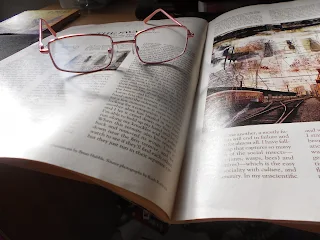
This was last Saturday, (figure out the date, it's Thursday today, although it already feels like a century ago) when I joined the Data Journalism Training given by Vera Files editor Yvonne Chua, sponsored by Mindanews, and held inside the Journalism Lab on the fifth floor of the Ateneo de Davao University (What building? I could no longer remember, but I can find that out). This was the same JournLab where I used to hold classes in the previous semester with third year AB Mass Comm students, three of them also joined the training. The one raising his hand here below is Walter, I don't know why he was raising his hand. I just happened to snap the shutter exactly at the time he did it, so, I think, he was really very smart to do that, but I'm smarter because I was the one who took this picture. (Guffaw). I learned a lot from the training but the most important thing that I learned was that I was dumb. One thing that really struck me from this training: that I'm really grateful for all the Maths I learned. Ms Yvonne simply remind me of my former Math teacher, the way she speaks and the way she loves Math. I also remember Maritess Villamor, my first editor, the one who really taught me how to write a business story, how to deal with sources, and everything that you need to know as a reporter. She charted my beginnings. Now I'm learning new things.





















